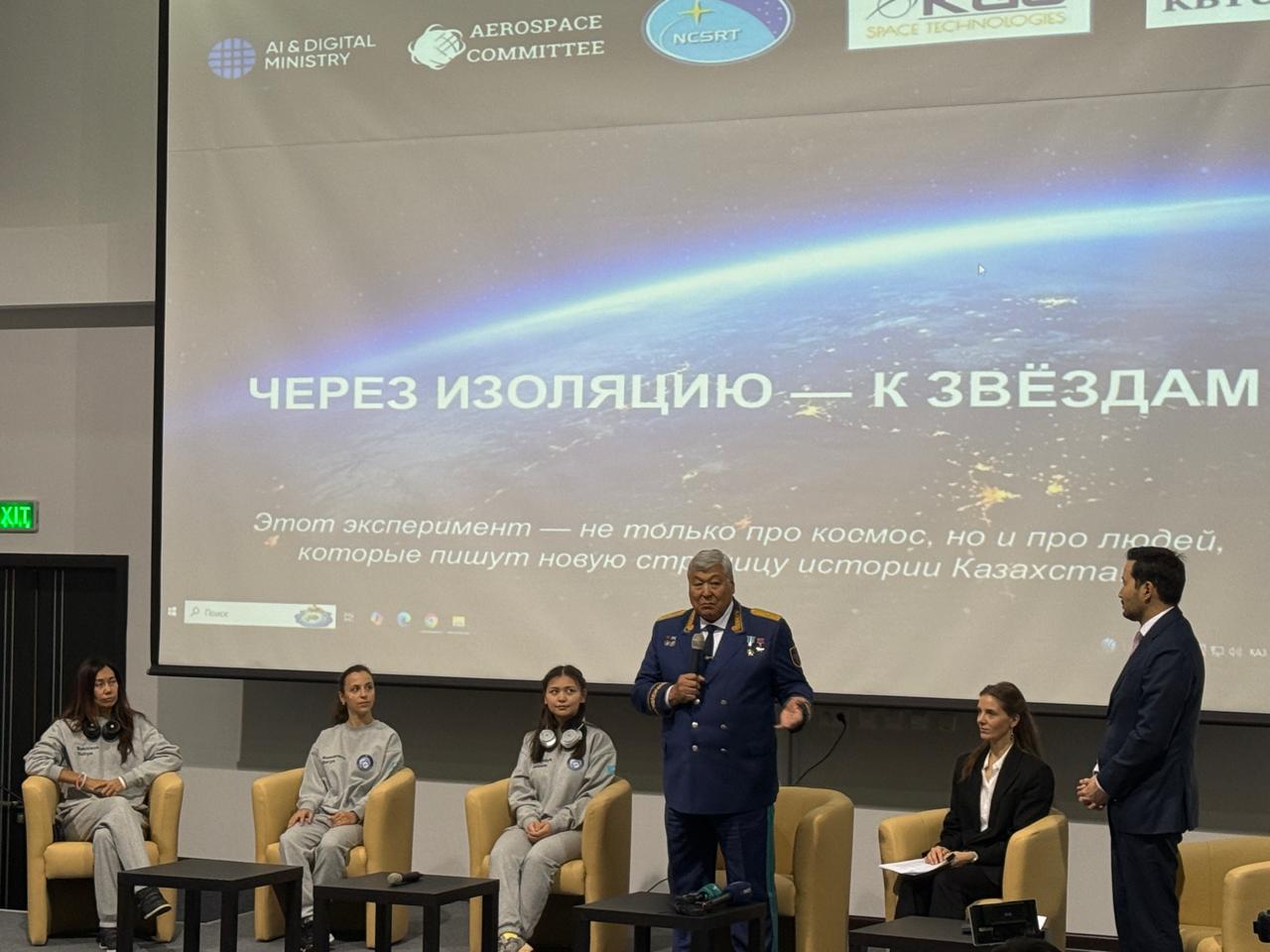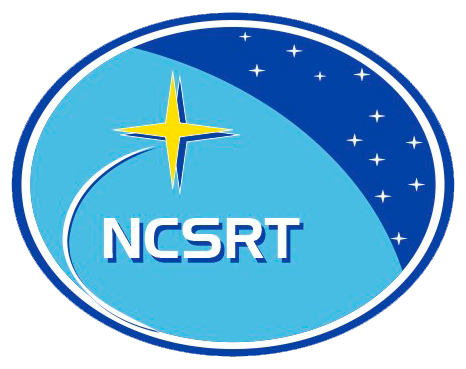The National Center for Space Research and Technology (NCSRT) completed the unique SANA-1 experiment.
15.10.25

On October 10, 2025, the ceremonial completion of Kazakhstan’s first scientific experiment, “SANA-1,” took place in Astana. The experiment aims to study the psychophysiological characteristics of humans in isolation and preparation for long-duration space missions.
The project was initiated by the National Center for Space Research and Technology (NCSRT) with the support of the Kazakh-British Technical University (KBTU), the Aerospace Committee of the Ministry of Artificial Intelligence and Digital Development of the Republic of Kazakhstan, and JSC NC Kazakhstan Gharysh Sapary.
The women’s team represents a new stage in domestic science.
A distinctive feature of the mission was the participation of female engineers and researchers, symbolizing Kazakhstan’s advancement in gender equality and women’s participation in space exploration. The crew includes Yulia Bakirova and Asem Kuandyk, employees of the National Center for Cosmonaut Training and Information Technologies who successfully completed a full test cycle, including psychological, physiological, and cognitive assessments.
The experiment exemplifies how female leadership, empathy, and supportive interactions build crew resilience in extreme isolation conditions.
Scientific Goals and Results
According to project scientific director Alina Gutoreva, the goal of the experiment was to study human cognitive, physiological, and emotional adaptation in a confined space.
The mission included medical and laboratory tests, experiments on stress resistance and cognitive flexibility, and an evaluation of the capsule’s engineering systems.
The data obtained will serve as a scientific basis for:
• developing a national cosmonaut training program,
• creating systems for monitoring psychophysiological conditions in isolation,
• improving stress resistance training methods,
Continuity of Generations and the Symbolism of the Date
The choice of the experiment’s completion date—October 10—has special significance. Exactly 34 years ago today, the first cosmonaut of independent Kazakhstan, People’s Hero Tokhtar Aubakirov, completed his mission.
During the ceremony, he addressed the participants, emphasizing the importance of psychological resilience, team spirit, and self-confidence as the key qualities of a cosmonaut.
Recognition and Gratitude
Chairman of the Board of JSC «NCSRT» Marat Dzhanikeyev presented the participants with diplomas for successfully completing the program, noting their contribution to the development of national science and the formation of a new generation of researchers.
Congratulations were also offered by Vice Minister of Artificial Intelligence and Digital Development of the Republic of Kazakhstan Malik Olzhabekov, representatives of JSC NC Kazakhstan «Gharysh Sapary», and the scientific community. Their support underscored the high significance of the SANA-1 project for Kazakhstan and the entire international space industry. The Significance of the SANA-1 Project
The SANA-1 experiment was a significant step for Kazakhstani science, combining scientific, engineering, and educational approaches into a single research platform.
The project promotes STEM fields among women, fosters a culture of interdisciplinary scientific collaboration, and strengthens Kazakhstan’s role in the development of space psychophysiology and the training of future crews.






